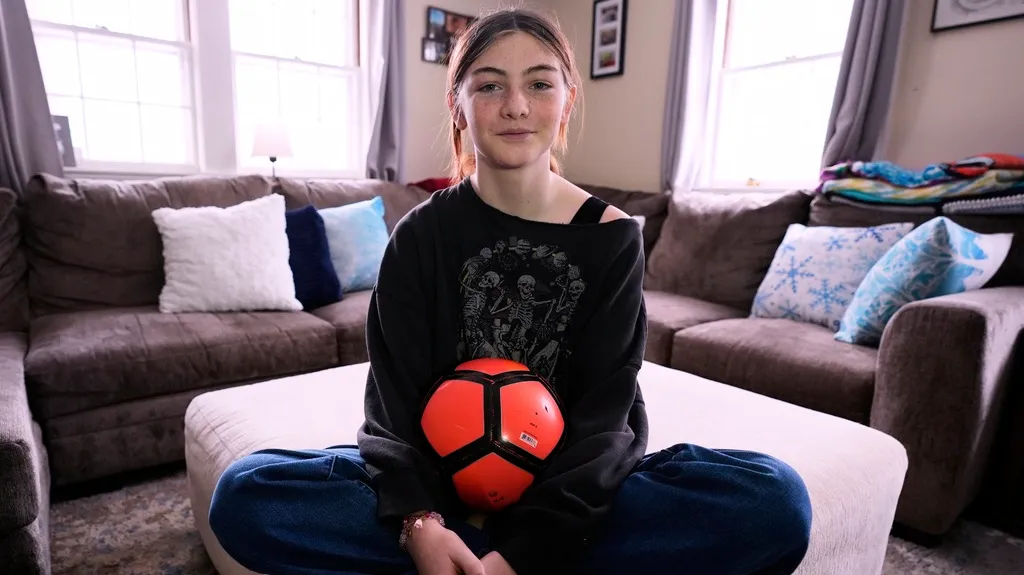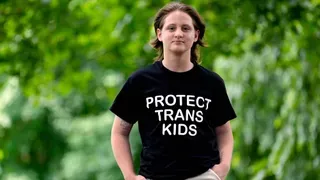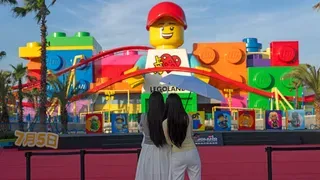June 28, 2011
Billie Jean King on New Knees and Boomer Fitness
Kilian Melloy READ TIME: 5 MIN.
Billie Jean King is back playing tennis in Central Park with gusto after double-knee replacement surgery. And at 67, she's encouraging all ages - especially baby boomers - to exercise and stay fit.
But she also says it's OK to forgive yourself if you can't match the workouts you did when you were young.
King, who inspired a generation of women and men to pick up a racket in the 1970s, didn't play tennis for nearly two years before getting new knees. She needed about a year of rehabilitation, working out for 2� hours, five days a week to regain the strength and range of motion to get back on the court.
When the pain was intense, she imagined "a bright, sunny day in my head. And I pictured hitting the first tennis ball again."
King realized that goal last year at Wimbledon, four months after surgery. She sneaked onto Court 16 and hit a few shots with friend Roz Fairbank while her partner Ilana Kloss snapped pictures.
This year, King celebrates the 50th anniversary of her first Wimbledon doubles victory. She went on to win a record 20 Wimbledon titles in singles, doubles and mixed, and on Monday, she was photographed at Wimbledon sitting behind Prince William and Kate Middleton in the Royal Box.
To stay in shape these days, the 39-time Grand Slam winner heads to the neighborhood gym and public tennis courts. She doesn't use a personal trainer because she travels so much, hitting the hotel gym instead. She recently traveled in a two-week span to Philadelphia, back to New York, then to Washington, D.C., while promoting her World Team Tennis league, which features Serena and Venus Williams, 52-year-old John McEnroe and other stars in nine cities from July 4-24.
Here King shares her insights on working out, the proper mental approach and diet. Her advice for boomers? Increase the frequency, lower the intensity and listen to your body.
-What is your exercise routine?
King: "My age group should do a half-hour, five days a week. What that means is I'm walking, doing the bike, lifting weights or playing tennis. I love it when Ilana and I go to Central Park and play tennis. It's fantastic. I go to Equinox to do lower and upper body stuff. Do a lot for my back - I need to be doing a lot for my core. I do the leg presses, the leg curls, abductor and adductor. I have a bike at home, so worse comes to worst, that's my backup. I'll turn on the TV and pedal."
-This was your eighth knee surgery. What was life like before the double-knee replacement?
King: "I got to the point I couldn't even walk two blocks. I had my first operation at 23 when I was No. 1 in the world, and it's been downhill ever since in terms of function. I used to take a taxi (two blocks) to get to my workout. My life was closing in on me. It kept getting less and less, and then it was really getting disheartening. Now I'm pain-free, if I want to play tennis or take a walk in the park. I'm going through this mindset change now. It's amazing. My first knee-jerk reaction is 'Oh, I can't - oh, yes I can do that.' I can go up and down stairs. I wouldn't be able to do that a year ago."
-How has your thinking and approach to fitness and exercise changed over the years?
King: "The most important thing is frequency. You don't have to do as much as you think. Like walking 30 minutes, five times a week is good. I would never increase more than 10 percent at a time. People will do 20 minutes on the bike and the next day they'll do 40. Nah-uh. If you're out of shape, don't do that. Figure out ways to keep your motivation. On days I'm not motivated, I will say, 'OK, just get on the bike or walk for 5 minutes, and if you want to stop, fine.' I give myself permission. I've only once in my whole lifetime stopped, when I realized I was sick. Every other time I end up doing at least 25-30 minutes. So then it's done for the day, it's great. I would go without exercising if I wasn't careful."
-What are your eating habits like these days?
King: "I try to cut down on carbs. I'm older, my metabolic rate probably is not as fast. I figure I'm burning three calories a minute on the bike. I'm not as intense as I used to be, so that makes a difference. It suppresses your appetite to go slowly on the bike or walk and go longer. I was playing senior tennis (after retirement) for a while but then I gained a huge amount of weight. Then I went on Nutrisystem, that really helped me lose. I lost 35 pounds. Then I got too thin with the knee stuff, and now I'm a little overweight. So it's hard for me to get to where I want to all the time. I struggle."
-You were a bit of a perfectionist on the court. Do you forgive yourself for the limitations of age or stress about it?
King: "It's a blessing for me to walk on the court. Then I go 'OK, I just want to hit one ball that feels like it used to.' You just make smaller goals, you make different goals. Coming back from this knee replacement, I had to really think in degrees, literally (in terms of knee bend). It's important to play more tennis, but play half an hour to 45 minutes instead of trying to play an hour and half. Instead of doing marathons, do a 10K. Listen to your body, what's going on with your joints, your muscles. I know boomers are into fitness, and taking good care of themselves. And now they're at the age they still want to be active. (They say) 'I want to still play tennis and do this and keep running.' They're pretty demanding. Which is good, because that's why we're living as long as we are."
-What's your role as a member of the President's Council on Fitness, Sports & Nutrition?
King: "It's amazing being on this council. There's Michelle Kwan, Grant Hill, Chris Paul and doctors. Our job is to get the word out. You can't believe the findings with exercise and taking tests at school or reading or math tests. They go way up. If they're going to take an SAT, they have the kids work out for 20 minutes and they take it immediately because the circulation is going, the brain's got more oxygen. They do much better on tests. Now we have the scientific stuff behind it. I knew it before, because I knew how I felt. But now we have the scientific stuff to back it up."
Kilian Melloy serves as EDGE Media Network's Associate Arts Editor and Staff Contributor. His professional memberships include the National Lesbian & Gay Journalists Association, the Boston Online Film Critics Association, The Gay and Lesbian Entertainment Critics Association, and the Boston Theater Critics Association's Elliot Norton Awards Committee.






